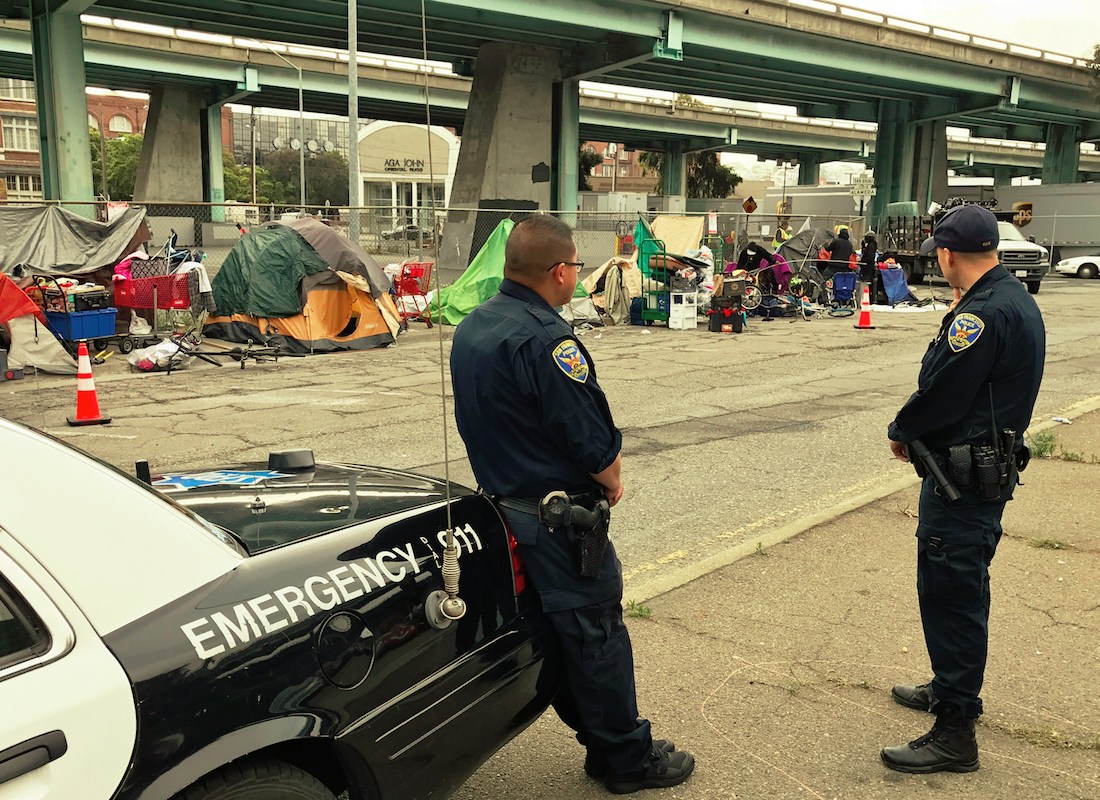
By Steve Pomper
Logic applies to even the ridiculous defund/abolish the police movement, right? After defunding or abolishing the police, setting aside its massive foolishness, cities must replace it with something else. Most police abolitionists advocate for replacements to be social workers and other unarmed “first responders.” But, some truly unthinking radicals believe the cop void will miraculously be filled… somehow.
Others seem to realize, even though they also believe cops suck, somebody needs to respond to 911 calls. Also, city/county charters normally mandate their jurisdictions provide law enforcement protection. But what happens when cities cancel police officers and don’t replace them with anything? Some cities are finding out.
Danny Westneat, a Seattle Times columnist, recently wrote, “The problem with Seattle’s experiment in defunding the police so far isn’t that there are now fewer police. It’s that they weren’t replaced with anything [I’d argue fewer police is also a problem, Mr. Westneat].” So, putting aside how stupid it is to replace Seattle Police Department (SPD) officers with social workers or violence interrupters (as in Minneapolis), there is a logic to the replacement equation. If you’re going to replace cops, with whatever, then do it.
While, nationally, there have been some reports of sporadic successes with non-cops responding to 911 “social services” calls, it’s certainly not widespread. Attempts in New York City have already dissolved. Other cities’ efforts have also failed, and some cities are awaiting what cops know is inevitable, serious injury or death.
For example, in Seattle, a social worker responded (not as part of an organized police replacement effort) to a man in a mental health crisis. The man stabbed her to death. That was precisely the type of call to which the police abolitionists want social workers to respond instead of cops. The suspect had simply returned from shopping, pulled a butcher’s knife out of one of the bags, went into an office, and stabbed the social worker 12 times, killing her.
Westneat writes about Jeff Anderson who runs an architecture firm in downtown Seattle. Anderson says the city has done “defunding backward.” Being downtown, he routinely deals with homelessness, mental illness, addiction and their associated crime and social services issues. Anderson observed, “They [the city] started with what they should have done last [or not at all].” By all means, get rid of the cops, but do that part last.
Anderson inadvertently conveys as poignant a description of the defund/abolish notion as I’ve heard. He said, “We were reluctant to deal with it [an illegal tent town on his property] by calling the police.” So, instead, he called some social services organizations. They responded and gave the trespassers blankets and other comfort items. Although, as Westneat writes, “none was able to coax the folks off the property and into a shelter.” Problem solved? Not.
Anderson doesn’t call the police who do have the authority to solve the problem, if they are allowed to. Instead, he calls for police-alternatives who proved themselves utterly ineffectual. Rather than solve the problem, the social services folks, who likely mean well, made the situation worse by making lawbreakers, whose tents are strewn across the front of the business, disrespecting private property rights, more comfortable in their criminality.
Put yourself in a seat behind one of these business owners’ desks. They are at work simply trying to put food on their and their employees’ tables. The trespassers are not the quirky but harmless street folk some would like us to believe. Anderson said with an increase in the people trespassing (why would they leave?), he’s also seen increases in “threatening behavior, drug dealing, and drug use.”
The architectural firm manager said he’ll return from lunch and find someone, “sitting next to our front door in a chair, shooting heroin.” Think about this in real terms. If you wanted to hire this company, made an appointment, and arrived at a mini-tent city barricade populated with dozens of dubious inhabitants, wouldn’t you consider retaining another firm—perhaps, one out of the city—perhaps, one as far out of the city as you could possibly get?
The business manager said after one of the tent-city “residents” punched a co-worker, he joined the city’s SPD trespass program. I used this resource often while I was still on the job. The owner/manager signs a contract allowing police to enforce trespass laws even when the owner isn’t present. If an officer sees someone on the property when the business is closed, he or she can legally remove that person. If the person refuses to leave, officers can make an arrest for criminal trespass. But that was back when the world made some sense—not much, but some.
Anderson said responding officers have told him, “Well, the police were defunded, so we can’t do anything about it.” I’m not sure this is exactly how the conversation went, but I believe the substance is true. Radical city politicians will not allow the cops to do anything about downtown street crime.
Back to doing things backwards, the city has managed to turn the Bizarro World defund/abolish the police into an even more backward version of its already backward self. In 2020, after the city’s first stab at defunding, it cut $46 million from the police budget. As a result, SPD lost nearly 200 officers just last year, and the exodus continues.
While at the SPD range for my annual LEOSA qualification course, an officer told me a story about the exodus. A detective was losing his position due to diminished staffing, and the chief was sending him back to patrol. He asked if there was another option. His supervisor was told, “No.” The detective replied, “Yes, there is,” and he put in his retirement papers.
But it’s not as if Seattle has done nothing at all to mitigate the massive officer losses. After all, although the city has lost a couple hundred cops last year, they did provide funding for five mental health counselors. Yes, five.